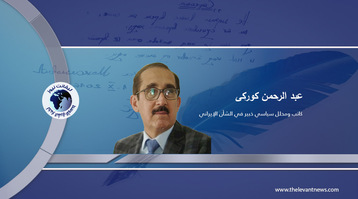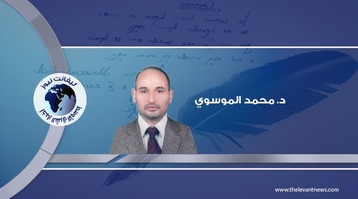-
Playing with fire

Iran’s deputy foreign minister, Abbas Araghchi, announced dramatically on April 13 that Tehran was ramping up its enrichment of uranium to 60% - its highest level ever- and a big step closer to the 90% that is required for weapons-grade material. Iran was responding to the “evil” act of Israeli sabotage of the Natanz nuclear reactor in Isfahan province. fire
The timing of the decision – and of the attack – really mattered: two days later indirect negotiations defined as “proximity talks” re-started in Vienna with the aim of reviving the 2015 nuclear agreement between the Islamic Republic, the US, Russia, China, and the E3 - comprising France, Britain and Germany.
The JCPoA, as that deal is known, was the outstanding foreign policy achievement of Barack Obama’s eight-year term. Donald Trump, his Republican successor, abandoned the agreement in 2018, re-imposing unilateral US sanctions on Iran and heralding his campaign of “maximum pressure.” President Joe Biden has vowed to return to it, invoking his belief in multilateral diplomacy.
The operation was not denied by the government of Prime Minister Binyamin Netanyahu; indeed news of the attack, and the involvement of the Mossad intelligence agency, were leaked to Israeli media, which are normally subject to strict military censorship on national security issues. One sympathetic American commentator even jokingly dubbed the Israeli leader “Natanzyahu.”
The attack was clearly intended as a signal to the US and Iran and the other parties trying to revive the 2015 deal, that Israel – the only (albeit undeclared) nuclear power in the Middle East – remained opposed to it and would stop at nothing to achieve its goal.
Iran’s foreign minister, Javad Zarif, pledged that the 60% enrichment would be reversed, as would previous breaches, if the US lifted sanctions. He called the Israeli action a "very bad gamble" that would strengthen Tehran's hand. Iran officially denies any ambitions to build nuclear weapons.
Natanz came in the wake of mounting evidence of Israeli attacks on Iranian forces and proxies in Syria and Iraq, as well as on Iranian tankers smuggling oil to Syria. Israel has also targeted Iranian ships in the Persian Gulf including the Saviz, reportedly used by the Islamic Revolutionary Guard Corps (IRGC), which western intelligence officials claim was a command-and-control vessel used to support the Houthis in Yemen’s war.
In Vienna the sides are negotiating (albeit from separate hotels) whether the US must lift all sanctions imposed or a selective group that is specifically linked to the nuclear deal. Iran has insisted it will only return to full compliance when the US lifts all sanctions that have throttled its economy, compounding the devastating effect of the covid pandemic. The US says some of these are not related to the nuclear deal but to other issues - such as terrorism, human rights, Iran’s ballistic missile programme or money-laundering. fire
But this challenging question is not just about tense and high-stakes international negotiations. Domestic issues are relevant too – in at least three countries. In Iran presidential elections are due on 18 June and the incumbent, Hassan Rouhani - deemed a moderate in western eyes - will hand over to the new government around 5 August. All the signs are that he will be replaced by a hardliner linked to the IRGC. Given their past objections to the JCPoA, that is assumed to make it far harder to resolve the nuclear issue.
Domestic politics are also part of the story in Israel. Netanyahu is considered to be “weaponizing” Iran’s purported nuclear ambitions in his own interests following last month’s inconclusive general election – the fourth in less than two years. Critics accuse him of seeking to avoid corruption charges – the first ever faced by a serving prime minister – in order to cajole hesitant coalition partners from joining his Likud-led government by manufacturing a national security crisis. “His judgment is liable to lead Israel into war,” as the Haaretz newspaper put it.
And in the US too the nuclear issue remains highly controversial for Biden, who has repeatedly signaled his commitment to rejoining the JCPoA. But he faces an uphill task in trying to undo the reputational and very real damage caused by his disruptive predecessor in the Oval Office.
Congressional objections to the Democrat’s nominees and demands that they expand the original deal to include Iran’s regional activities and ballistic missile program are unlikely to go down well in Tehran. Analysts have begun talking about crafting a “JCPoA plus”. Opponents see Biden as just another version of Obama when it comes to Iran: by reviving the nuclear agreement he will recognize its regional ambitions at the expense of both Israel and the Gulf states, they argue. fire
Another factor in weakening America’s economic leverage is the signing of 25-year strategic accord with China, in which Beijing has promised to invest $400bn in Iran in exchange for cheap oil. The IMF is predicting that Iran’s economy is on its way to recovery
On paper, Washington remains committed to diplomacy, but the succession of escalatory decisions in recent times suggests that both Israel and Iran, having chosen the path of confrontation, are now playing with fire. fire
by: IAN BLACK levant

Tags
You May Also Like
Popular Posts
Caricature
Syrians' concerns now
- December 10, 2024
Syrians' concerns now #Syria
#Bashar_al-Assad
#Liberation_of_Syria
#Syrians
#Future_of_Syria
#Levant_News

opinion
Report
ads
Newsletter
Subscribe to our mailing list to get the new updates!



















